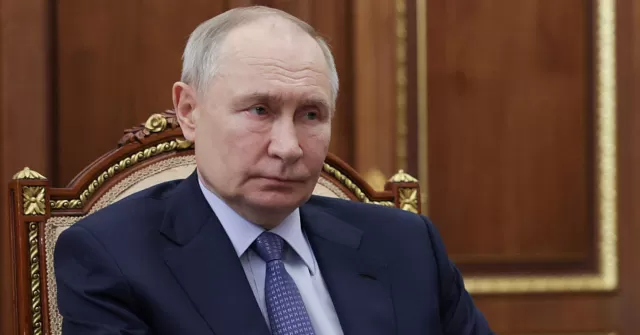The Russian Foreign Ministry has recently announced that there will be “adjustments” in its demands to Ukraine, citing “developments on the ground.” This comes after the Kremlin confirmed that President Vladimir Putin will not be meeting with Ukrainian President Volodymyr Zelensky, despite the latter’s call for a face-to-face discussion.
This decision by Putin has been met with mixed reactions, with some seeing it as a missed opportunity for dialogue and others viewing it as a strategic move by Russia. However, the Russian Foreign Ministry’s statement sheds some light on the reasoning behind this decision.
According to the ministry, the “adjustments” in demands are necessary due to the changing situation in Ukraine. This could refer to the ongoing conflict in eastern Ukraine, where pro-Russian separatists have been fighting against Ukrainian government forces since 2014. The recent escalation of tensions in the region, including the increase in ceasefire violations, could be the reason behind Russia’s decision to re-evaluate its demands.
The statement also mentions that these adjustments are not a sign of weakness or a change in Russia’s stance towards Ukraine. Instead, they are a reflection of the current reality on the ground. This could be seen as a diplomatic way of acknowledging that the situation in Ukraine is complex and requires a nuanced approach.
The decision to reject Zelensky’s call for a meeting could also be seen as a calculated move by Putin. With tensions between Russia and Ukraine at an all-time high, a face-to-face meeting between the two leaders could have potentially escalated the situation further. By avoiding the meeting, Putin is sending a message that he is not willing to engage in talks that could potentially be unproductive or even detrimental to the relationship between the two countries.
This move by Russia has also been interpreted as a snub to Zelensky, who has been pushing for a meeting with Putin since he took office in 2019. Zelensky has repeatedly stated his willingness to engage in direct talks with Russia in order to find a peaceful resolution to the conflict in eastern Ukraine. However, it seems that Putin is not yet ready to engage in such talks.
Despite this setback, Zelensky remains committed to finding a peaceful solution to the conflict. In a recent statement, he emphasized the need for dialogue and expressed his disappointment at Putin’s decision to reject the meeting. He also stated that he will continue to work towards a peaceful resolution and will not give up on his efforts to engage with Russia.
It is important to note that this is not the first time that Putin has rejected a meeting with a Ukrainian leader. In 2016, he refused to meet with then-President Petro Poroshenko, citing similar reasons of “changes on the ground.” This pattern suggests that Putin is not willing to engage in talks unless he sees a clear advantage for Russia.
In conclusion, the Russian Foreign Ministry’s statement sheds some light on the recent developments between Russia and Ukraine. While the rejection of Zelensky’s call for a meeting may be seen as a setback, it is important to understand the complexities of the situation and the need for a nuanced approach. It is clear that both countries have their own interests and concerns, and finding a peaceful resolution will require compromise and dialogue. Let us hope that both sides can come to the table and work towards a lasting solution for the benefit of both nations.






![Complete BritRail Pass Guide [Types, How to Use It, Pros + Cons]](https://inside-news.uk/wp-content/uploads/2025/06/00221EB4-BCA2-4DBB-6CD4-83DBC37D71FA-120x86.webp)













